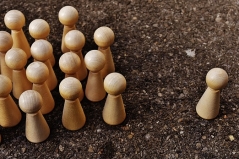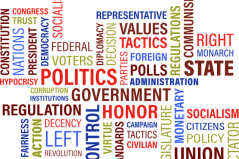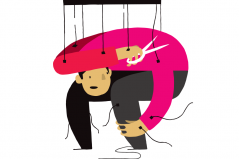Only searching for a plane? What the disappearance of Flight MH 370 reveals about the human need for meaning and certainty

keywords:
meaning, certainty, understanding, control
Only searching for a plane? What the disappearance of Flight MH 370 reveals about the human need for meaning and certainty
In this post, I describe how two core motives of human social behavior—the need for understanding and the need for control—shape people’s responses to disaster. Using the disappearance of Malaysian Airlines Flight 370 as an example, I describe how people seek to maintain meaning (related to understanding) and to re-establish certainty (related to control) after unforeseen disasters. / more
Coping with being bullied

keywords:
bullying, Aggression, coping, interventions
Coping with being bullied
In this blog post, I discuss recent research suggesting that being the victim of bullying can have a long-lasting impact on mental and physical health. But there’s a ray of hope in this literature as well: the lasting impact may depend on the ways that victims cope with being bullied. / more
Political ideology is more than just “liberal” and “conservative”

keywords:
political psychology, ideology, need for cognitive closure, policy attitudes, prejudice, discrimination
Political ideology is more than just “liberal” and “conservative”
In this blog post, I describe new evidence that thinking about political ideology on a single liberal/left to conservative/right spectrum masks important nuances in the origins of political ideologies and in the way that people apply those ideologies to important judgments, including those of other people (i.e., prejudice ). / more
Would One Direction be as popular if we got to re-run the world?
keywords:
social influence, Cultural Markets, Cumulative Advantage
Would One Direction be as popular if we got to re-run the world?
In this post I ask why do songs, movies and books become popular? If you love something, it is easy to think it must be its obvious qualities, but if you work in promotion, you know that these qualities are not easy to spot . Usually, we look to our peers to discover new things – what Psychologists call social proof. The work I present shows how important social proof is in determining what becomes popular, but also that appeal, to some degree, matters. / more
Can music create intercultural understanding? According to Madonna (and psychological research), it can!

keywords:
music, similarity-attraction, value theory
Can music create intercultural understanding? According to Madonna (and psychological research), it can!
In my last blog, I argued that Madonna’s lyric of ‘music makes the people come together’ has a scientific basis. There are scientific studies that support the claim that music indeed increases cooperation and, thus, brings people together. But, as you might remember, the second line in the chorus of Madonna’s song is: ‘Music mix the bourgeoisie and the rebel’. In this blog, I will discuss whether she is citing the literature correctly or not. / more
Pre-registration watch part 1: Detecting deception

keywords:
pre-registration, methods, solid science
Pre-registration watch part 1: Detecting deception
In this blog post, I will report on the experiences of social psychologists, such as myself, with committing ourselves to detailed descriptions of the hypotheses and other specifics of experiments before we run them. In part 1, I briefly cover some basics about this so-called pre-registration and then I will discuss my own experience with a pre-registration in the online journal Frontiers about unconscious deception detection. / more
Free will without metaphysics

keywords:
free will, folk concepts, morality, choice, blame
Free will without metaphysics
Despite the resurgence of interest in free will, there remains confusion and disagreement regarding free will’s role in social life, in particular, how people understand free will and whether free will guides blame and praise for others. In this blog post I argue that we need to pay closer attention to the folk concept of free will in order to resolve the confusion surrounding free will in everyday life. / more
Where are the genes for psychological traits?
Where are the genes for psychological traits?
In this blog post, I will discuss the methodologies available for identifying genetic influences on psychological traits, why it has proved so difficult to reliably identify specific genes, despite 20 years of effort, and what this tells us about the nature of these genetic influences. / more
Marrying smart or marrying instead of being smart? The goal conflict between MRS degrees and STEM degrees
keywords:
romantic relationships, gender, STEM
Marrying smart or marrying instead of being smart? The goal conflict between MRS degrees and STEM degrees
In this blog post, I review a number of studies that suggest that telling women to focus on their MRS degree (aka getting married) while in college can make women less interested in earning a STEM degree (Science, Technology, Engineering & Math). Why does this matter? Because the STEM fields are in desperate need of women. Luckily, research also suggests that women in STEM are more desirable than women may realize. / more
Sticks and stones and breaking bones: Social psychology and school aggression

keywords:
school, Aggression, bullying, peer group, social identity
Sticks and stones and breaking bones: Social psychology and school aggression
Bullying is a pervasive issue in schools today. This is one of two blog posts that will look at school aggression from the perspective of contemporary social psychology. In this post, I'll examine the role of groups in encouraging bullying. In my next post, I'll look at the perspective of the bullied victims. When it comes to bullying, it seems that groups can both be a part of the problem and the solution. / more
